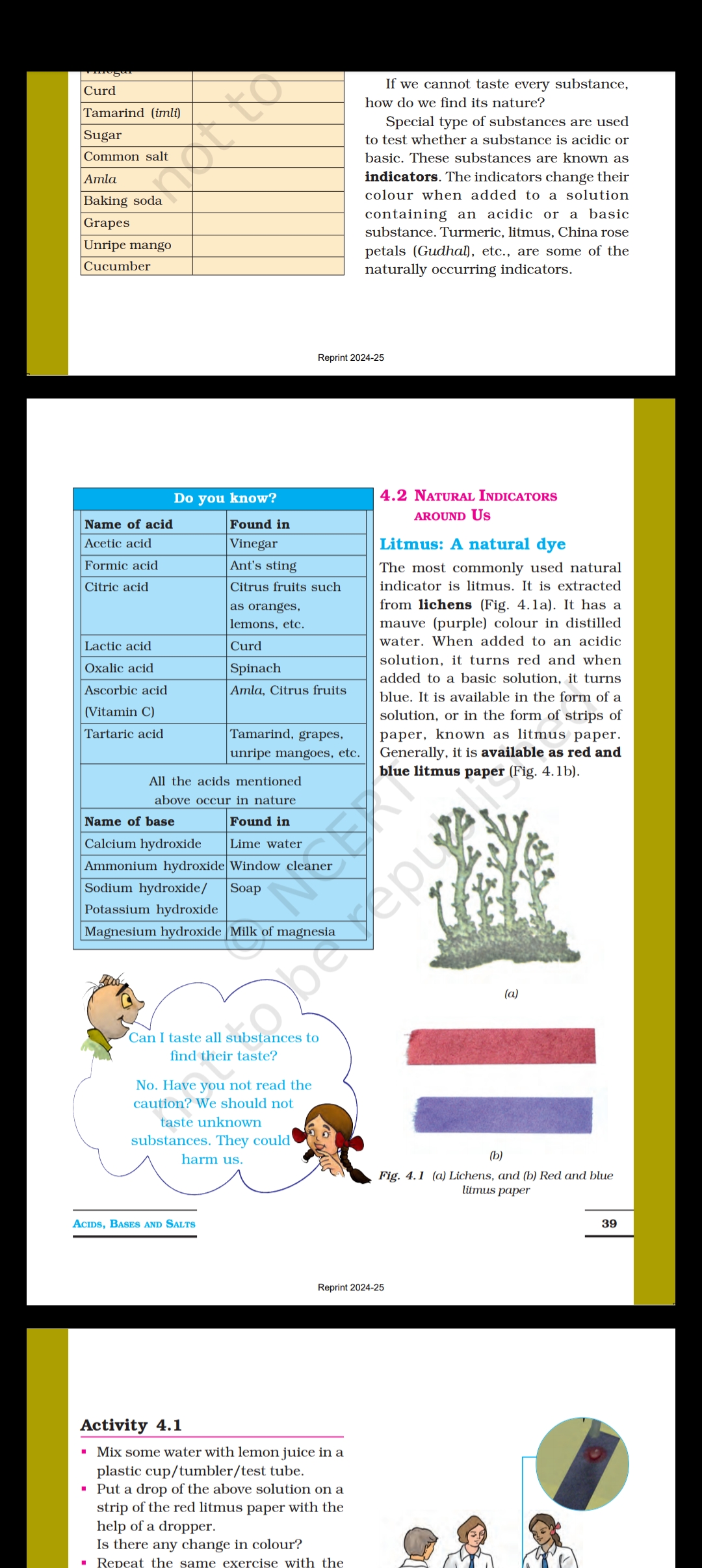How do natural indicators such as litmus work in determining if a substance is acidic or basic?

Understand the Problem
The content in the image discusses natural indicators used to determine whether a substance is acidic or basic. It lists various acids and bases along with their sources and explains the use of litmus as a natural dye for such determinations.
Answer
Litmus changes color: acids turn blue litmus red, bases turn red litmus blue.
Litmus is a natural indicator obtained from lichens that changes color in the presence of acids and bases. Acids turn blue litmus red, while bases turn red litmus blue. This change occurs due to chemical reactions involving the protonation or deprotonation of the indicator.
Answer for screen readers
Litmus is a natural indicator obtained from lichens that changes color in the presence of acids and bases. Acids turn blue litmus red, while bases turn red litmus blue. This change occurs due to chemical reactions involving the protonation or deprotonation of the indicator.
More Information
Litmus paper is one of the oldest types of natural indicators and is widely used in educational laboratories because it offers a simple and effective test for acidity or basicity.
Tips
Ensure the litmus paper is used under appropriate conditions and not contaminated with other chemicals, as this may affect results.
Sources
- Acid-Base Indicators - Chemistry LibreTexts - chem.libretexts.org
- Litmus | Acid-Base Reactions, pH Testing & Indicators - Britannica - britannica.com
- What Is Litmus Paper? - History, Composition, Colours with Examples - byjus.com
AI-generated content may contain errors. Please verify critical information